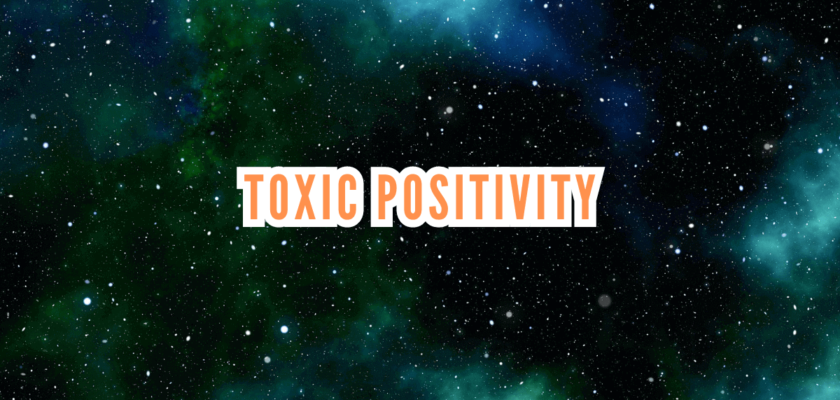Toxic positivity! There are times when positive sentences from our friends or relatives when we are in trouble can lift our spirits and increase our strength.
There are times when there are positive sentences such as: “Don’t give up, always be grateful, we still have many shortcomings, or your problems are not as big as other people’s problems,” or so on.
Indeed, it can be a fire that burns us to always be enthusiastic, but sometimes these words can make other people look small, discouraged, and can even hurt their feelings.
Table of Contents
Toxic Positivity
How can be like that? Yes, toxic positivity, a situation where someone continuously encourages their acquaintances who are experiencing disaster to always see the good side in life, without considering that person’s experience.
Or without considering the person expressing their feelings.
You can actually ignore the true feelings of the person in trouble, as if the negative feelings that person is experiencing and wanting to express are not important to other people.
Why might the urge to “be positive” have a negative impact? Because not everyone needs to be encouraged, when talking about negative feelings or bad experiences.
Often when they talk about their frustration, anger, anxiety, the people around them always say positive things.
But that’s not what they need when facing problems, because every emotion contains a message of anger, disgust, sadness, or fear.
If these emotions are ignored or suppressed in order to always appear positive or happy in front of other people, negative emotions will actually build up and can trigger stress, even depression.
We do have a culture of low tolerance towards people who find it difficult to smile when they are in trouble, or towards people who cannot see the good side of a bad incident.
It is not uncommon for people to be sad in front of us, complain in front of us, cry in front of us, we consider this to be normal and we hope that their emotions will recover soon.
We convey all these positive words in the hope that he will get well soon, and if he doesn’t get well soon then we will immediately think he is a weak person.
Even though it doesn’t really help, it only makes him more stressed and less confident, and thinks we don’t care about him.
So, here! Toxic Positivity
Giving positive words to other people, if we don’t use empathy it can have negative consequences.
First, they will look bad if they are filled with disappointment, anger and sadness, then, they will feel like weak people if they are not grateful for what they have.
So what to do? When someone comes face to face with an acquaintance who has been struck by a disaster, don’t immediately respond with advice, or encouragement to immediately think positively.
Listen to his complaints first, don’t judge immediately, give him the opportunity to express his feelings until his feelings really subside, and just listen first, maybe he just wants to be heard.
When he is angry with someone, don’t immediately say, “Be patient and forgive the person who made you angry.” Don’t be like that, listen to him, ask why he’s so angry, then wait until his anger really subsides.
And maybe we don’t need to give advice, because he already knows what he has to do.
Not everyone needs encouragement when talking about negative feelings or bad experiences.
What that person needs is not positive words but empathy from us, the opportunity to be heard and understood by us.
The main thing when someone is faced with a friend who is in trouble, is not to respond to him with positive advice and encouragement.
Listen to him without judgment, give him the opportunity to express his emotions until they really subside.
Use our empathy and common sense when dealing with these people. When your friend wants to give up, don’t rush to say the words, “Don’t give up!” But ask him why he wants to give up.
When facing a friend who is angry, try listening to him first until he is completely satisfied with telling you about his anger, because after that you can definitely be invited to find a solution together.
So differentiate between empathy and toxic positivity, when you want to give up instead of using the words please don’t give up, then try replacing them with more empathetic words.
When a friend is in trouble, instead of using the words, “Let’s stay positive,” try replacing them with words that contain more empathy.
When a friend is disappointed, instead of using words that say you are not grateful, try replacing them with words that contain more empathy, perhaps with the words: “Yes, it’s natural that you are disappointed about this.”
Once again, differentiate between empathy and toxic positivity, negative emotions are normal, especially for people who are annoyed, angry and disappointed, and cannot be removed just with positive words.
We just need to admit and let it go, without being burdened with a false positive attitude, toxic positivity, that way someone will be able to be honest in facing the reality of their life.

